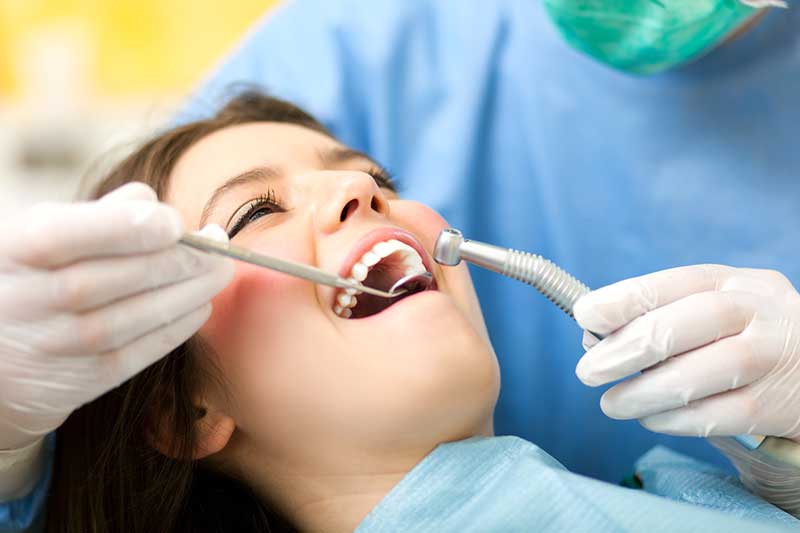Tooth Extractions in Los Angeles, CA

When a tooth is badly damaged or diseased and does not respond to other treatment options, a dental extraction may be required. This procedure involves surgically removing the tooth, but thanks to the modern techniques and equipment we use at Cal Dental Group, it is a virtually painless process. At Cal Dental Group, we perform tooth extractions in Los Angeles upon our dentist’s recommendation or patient request. Getting a wisdom tooth extraction is a big decision. Our experienced dentists are dedicated to providing compassionate, pain-free dental care.
What is Tooth Extraction Procedure?
Because we are committed to using only the most advanced treatment options, tooth extraction is a relatively simple process. Anesthetic is used to prevent pain, and the tooth is surgically removed by one of our experienced Austin dental tooth extraction dentists.
After the extraction, you may be required to take antibiotics to prevent infection. Our dentists and support staff are committed to making the process as painless as possible.
Wisdom Tooth Extraction
In addition to traditional tooth extractions, our dentists also perform a wisdom tooth extraction. Wisdom teeth are an extra set of molars located in the back of the mouth and typically appear between the ages of 17 and 25. Impacted wisdom teeth can be painful.
If you are experiencing toothaches and would like to learn more about your tooth removal options, please set up an appointment with us today.
Cal Dental Group Dentist Expert at Handling Impacted Wisdom Teeth
In every young adult’s life, there comes a time when they make an important decision regarding their oral health care. The Cal Dental Group dentist coins this unique period as the “Age of Wisdom.” Patients between the ages of 17 and 25 experience a new set of teeth developing at the back of their mouth. Known as wisdom teeth or third morals, they are the last to develop and break through the gums. Unfortunately, nine out of ten people are reported to experience pain in at least one tooth. The wisdom tooth, which is causing tremendous difficulty, is said to be impacted. Why does this happen?
Don’t Take Wisdom Tooth Problems Lightly
The dentist explains young adults experience tremendous pain in their mouth because there isn’t sufficient room for the wisdom teeth to grow. The American Association of Oral and Maxillofacial Surgeons (AAOMS) strongly recommends that patients visit a dentist specializing in Maxillofacial surgery. Specialized dentists can evaluate if the third moral needs to be extracted. Signs of complications include infection and/or periodontal disease, fluid-filled cysts and tumors and damage to neighboring teeth. If left untreated, these conditions may become complicated and cause problems in other areas of the body.
Oral Care is Mandatory for Healthy Functional Teeth
The Cal Dental Group warns patients that third morals need to be examined even if they grow painlessly. The American Association of Oral and Maxillofacial Surgeons (AAOMS) and the Oral and Maxillofacial Surgery Foundation (OMSF) agree that healthy wisdom teeth require regular and professional cleaning. Annual check-ups and periodic radiographs are essential as they will make sure that your gum tissues and teeth are in optimal condition. Without these precautionary measures, oral bacteria may develop in the hard to reach areas at the back of your mouth. Oral bacteria that enter the bloodstream may cause heart or kidney problems.
Surgery and Post-Surgery Expectations
Patients that have impacted teeth can visit the Cal Dental Group for consultation. After proper examination, Maxillofacial surgery may be required. The oral surgeon will properly guide patients on what will happen during and after the surgery. It is advisable to ask as many questions as you possibly can to remove all doubts. Your dentist will actively listen and respond to any queries.
Patients are also expected to talk about their illness and any medications they may be taking. During the surgery, patients will either be given local anesthesia or intravenous sedation or general anesthesia, so the impacted third moral can be removed with little to no pain. Post-surgery, patients may experience swelling and mild discomfort. With cold compressions, special diet, and medication, these post-surgery symptoms disappear soon enough.
